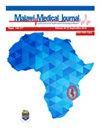The Self-efficacy of Malawian Nursing Educators towards the use of Case Study Teaching Method
IF 0.8
4区 医学
Q4 PUBLIC, ENVIRONMENTAL & OCCUPATIONAL HEALTH
引用次数: 0
Abstract
Introduction The case study teaching method is important in imparting critical thinking and clinical reasoning skills in nursing students. The self-efficacy of the nurse educators towards the use of the case study teaching method is a critical aspect of determining the quality of teaching using this method. This study, therefore, aimed at assessing the self-efficacy of the nurse educators towards the use of the case study teaching method in Malawi. MethodA cross-sectional study utilizing a quantitative research design was conducted at eight nursing colleges that are under the Christian Health Association of Malawi. Only nursing colleges offering college diplomas in nursing and midwifery technician were involved. A total of 145 nurse educators completed the Self-Efficacy towards Teaching Inventory. The computer software of Statistical Package for Social Sciences version 23.0 was used to analyze the data.Results The results show that the nurse educators are confident in using the case study teaching method (mean=78.4, SD=11.166). The study results also show that there are differences in mean scores between the nurse educators who attended an education workshop and those who did not (t=5.2334; P<0.001). Conclusion The study indicates that Malawian nurse educators have moderate levels of self-efficacy in using the case study teaching method. This study, therefore, has shown a need for nurse educators to participate in strategies that can increase their level of self-efficacy in using case studies.马拉维护理教育工作者对案例研究教学法的自我效能感
案例教学法对护理学生批判性思维和临床推理能力的培养具有重要意义。护理教育工作者对使用案例研究教学法的自我效能感是决定使用该方法的教学质量的关键方面。因此,本研究旨在评估马拉维护士教育工作者对使用案例研究教学法的自我效能感。方法在马拉维基督教健康协会下属的八所护理学院进行了一项采用定量研究设计的横断面研究。仅涉及提供护理和助产技术大学文凭的护理学院。共有145名护士教育工作者完成了教学自我效能感量表。采用统计软件包社会科学23.0版计算机软件进行数据分析。结果护理教育工作者对案例教学法的应用有信心(均值78.4,SD=11.166)。研究结果还显示,参加教育研讨会的护理教育工作者与未参加教育研讨会的护理教育工作者的平均得分存在差异(t=5.2334;术中,0.001)。结论马拉维护理教育工作者在案例教学中具有中等水平的自我效能感。因此,这项研究表明,需要护士教育工作者参与的策略,可以提高他们的自我效能感水平在使用案例研究。
本文章由计算机程序翻译,如有差异,请以英文原文为准。
求助全文
约1分钟内获得全文
求助全文
来源期刊

Malawi Medical Journal
Medicine-General Medicine
CiteScore
1.50
自引率
0.00%
发文量
27
审稿时长
>12 weeks
期刊介绍:
Driven and guided by the priorities articulated in the Malawi National Health Research Agenda, the Malawi Medical Journal publishes original research, short reports, case reports, viewpoints, insightful editorials and commentaries that are of high quality, informative and applicable to the Malawian and sub-Saharan Africa regions. Our particular interest is to publish evidence-based research that impacts and informs national health policies and medical practice in Malawi and the broader region.
Topics covered in the journal include, but are not limited to:
- Communicable diseases (HIV and AIDS, Malaria, TB, etc.)
- Non-communicable diseases (Cardiovascular diseases, cancer, diabetes, etc.)
- Sexual and Reproductive Health (Adolescent health, education, pregnancy and abortion, STDs and HIV and AIDS, etc.)
- Mental health
- Environmental health
- Nutrition
- Health systems and health policy (Leadership, ethics, and governance)
- Community systems strengthening research
- Injury, trauma, and surgical disorders
 求助内容:
求助内容: 应助结果提醒方式:
应助结果提醒方式:


